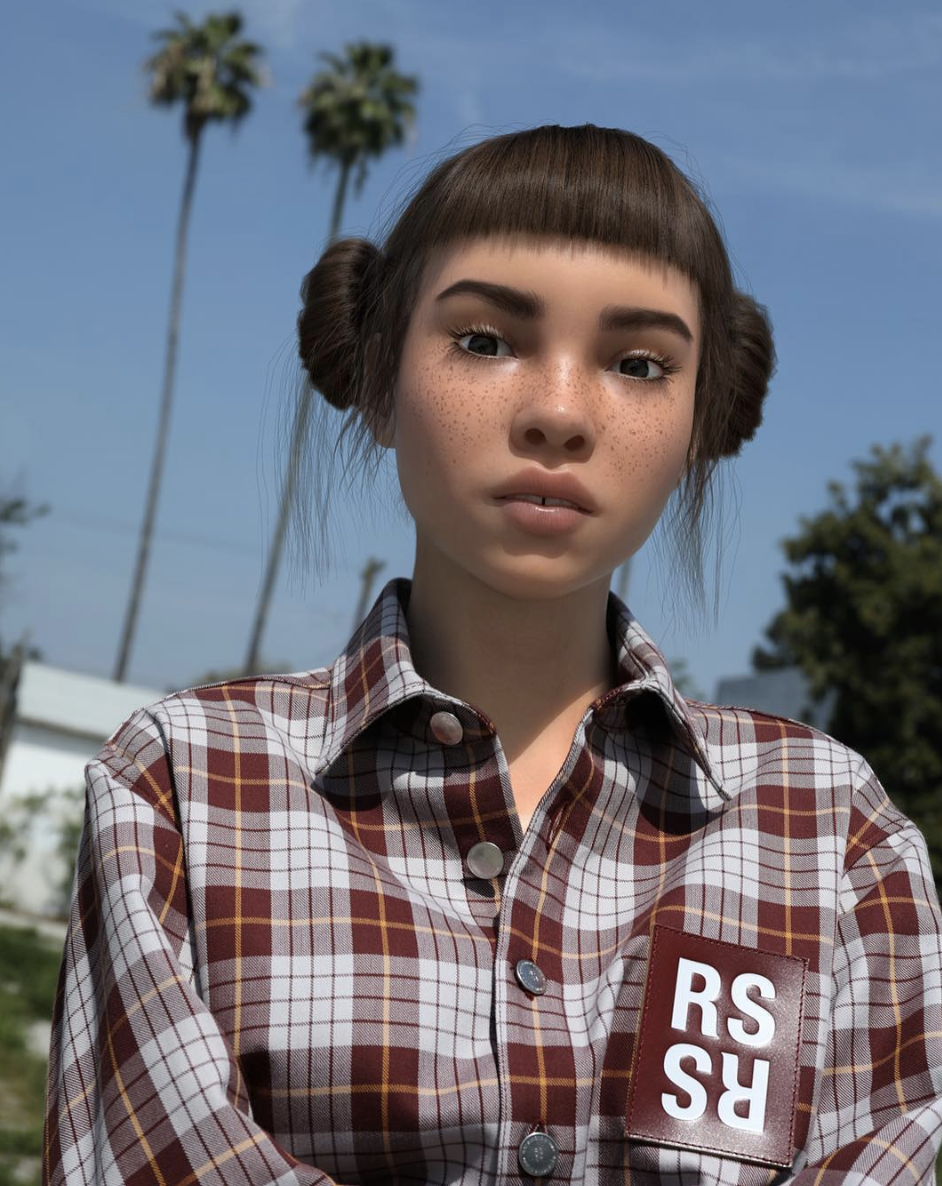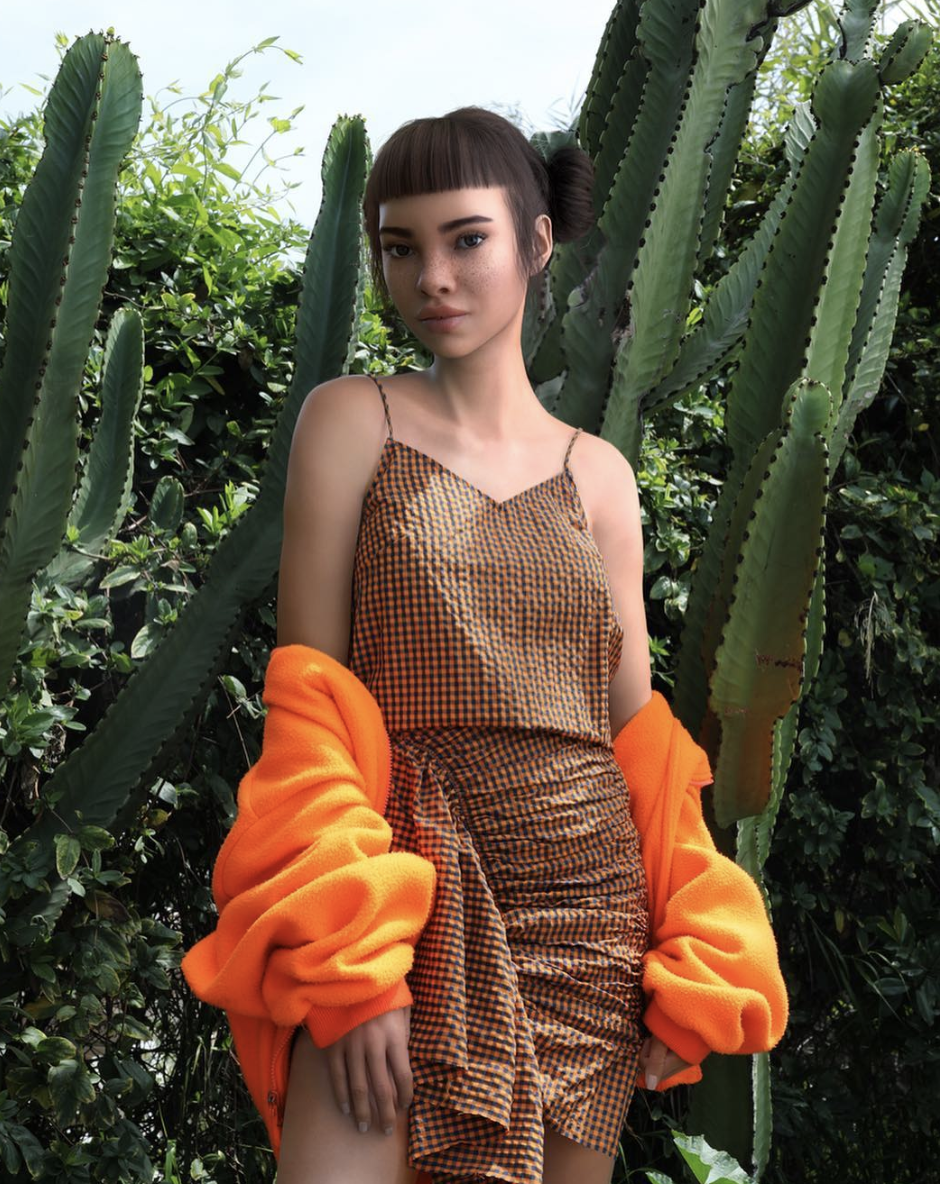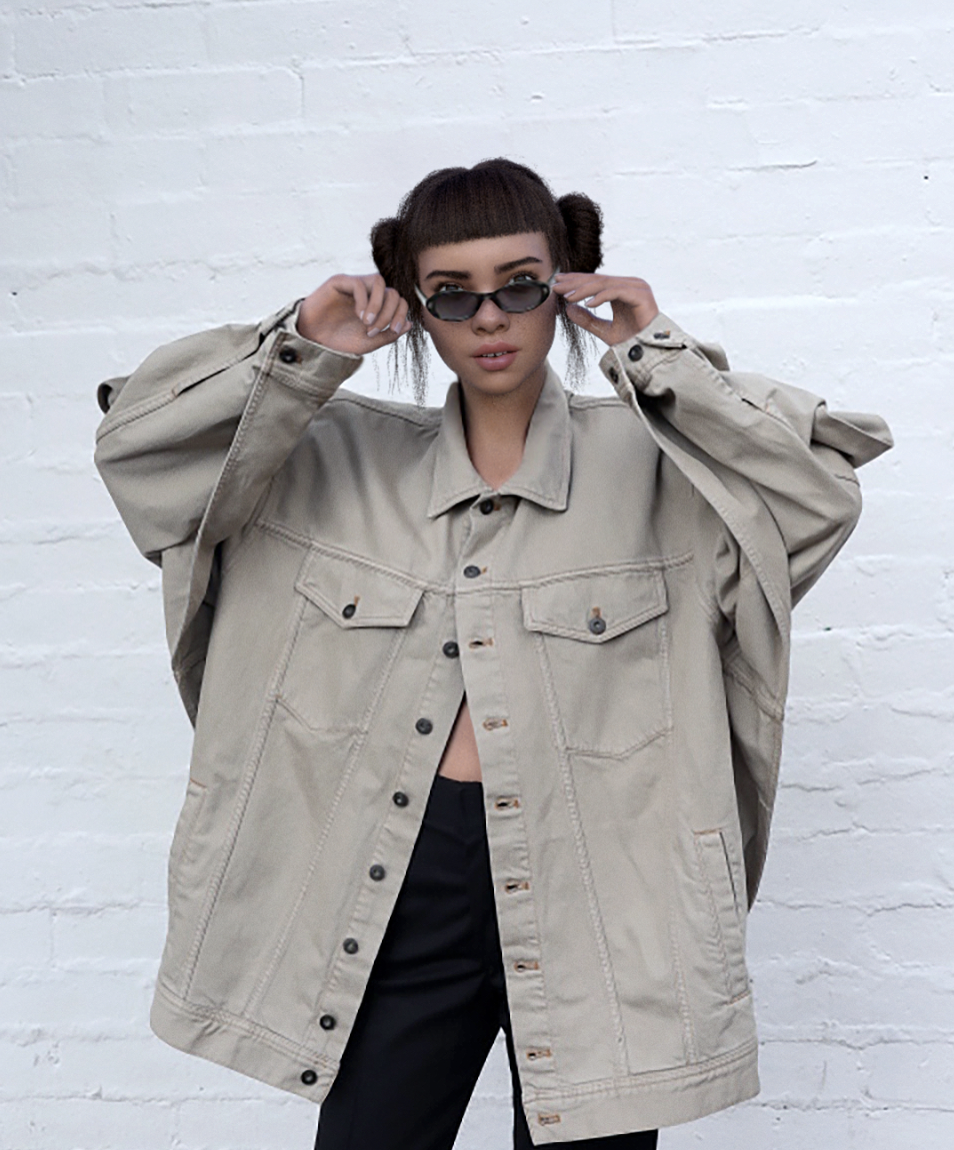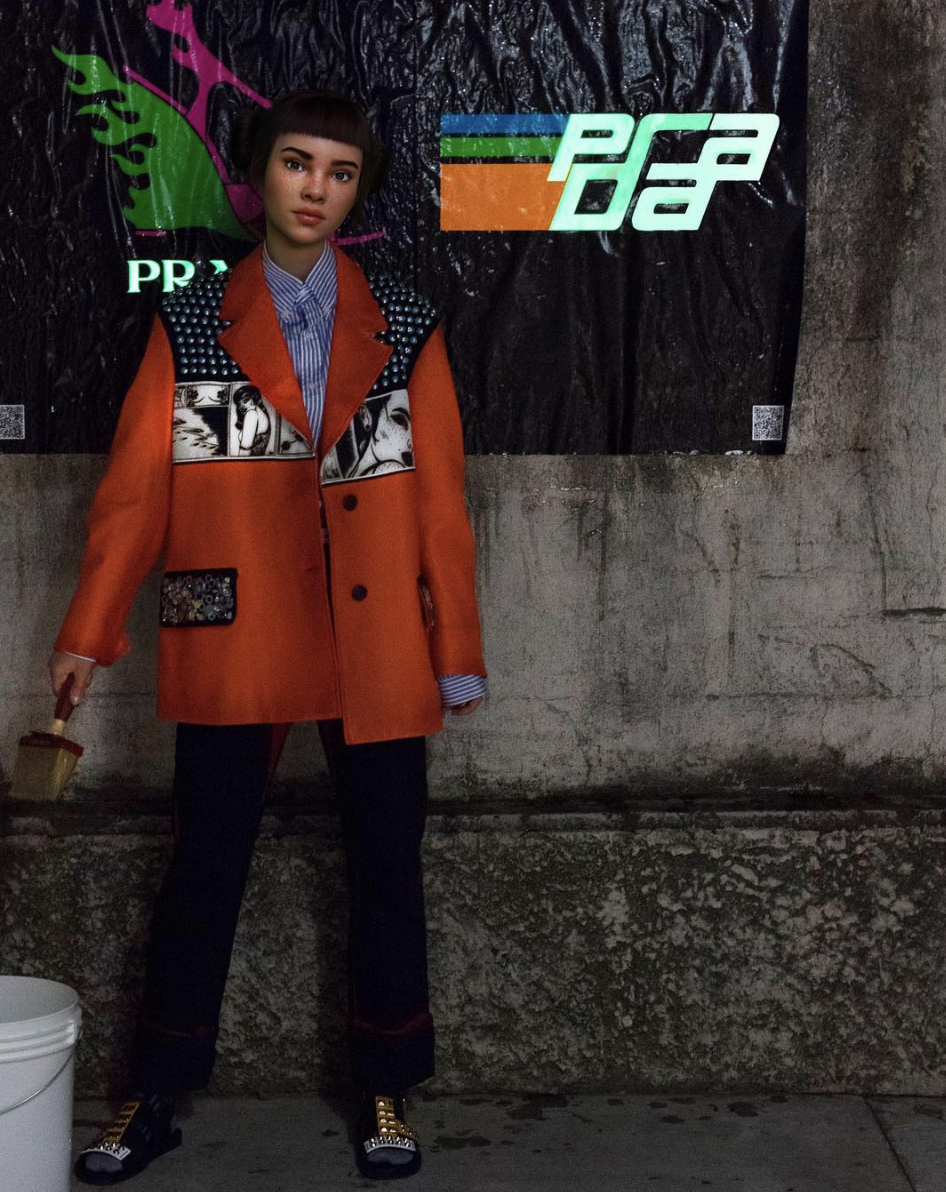“I’m sorry, this is crazy,” said Jamie Chung as she scrolled through Instagram on her iPhone. The actress and “What the Chung” blogger was on a panel called “Influencers of the Future: Tastemakers or AI?” at SXSW in Austin back in March and had just learned about the CGI-generated model and musician Miquela Sousa, also known as @lilmiquela. As Chung pulled up Sousa’s feed — filled with designer fit pics and selfies — so did the rest of the attendees in the audience. “When we had this conversation prior to talk about the topic, I thought, ‘There’s no way they’re going to take over,'” said Chung to her fellow panelists, Finery co-founders Brooklyn Decker and Whitney Casey. “But after looking at this, I do think it’s quite possible.” At the end of last year, we had Sousa on our radar for one of the fashion influencers to watch in 2018, and since then, her following has grown exponentially to 1 million followers on Instagram. In February, Business of Fashion called her “Fashion’s First Computer-Generated Influencer” and the partnerships from brands and publications have steadily rolled in. She attended Prada‘s Fall 2018 runway show and debuted the Italian house’s GIF sticker pack; she attained muse status in the eyes of beauty mogul Pat McGrath; she landed an editorial in V Magazine, as well as a King KongMagazine cover; and she’s rubbed elbows with top-tier fashion industry folk like Giovanna Battaglia Engelbert and Margaret Zhang.
On Friday, Semaine will launch three online concept shops in collaboration with Sousa, marking its first-ever partnership with a virtual influencer. Unlike previous tastemakers featured on Semaine, each shop is tailored to a different look or aesthetic of Sousa’s: “Virtual Princess,” “Rock Royalty” and “Culture Kitsch.” The shops feature a slew of fashion items, from designer names to streetwear, as well as beauty products, home decor and links to purchase “The Sims 4″ game and Facetune app — a nod to Sousa’s digital-only presence.”We are pushing the boundaries a little more with the digital experience that we’re able to offer because her identity is crafted,” says co-founder Michelle Lu over the phone from the company’s headquarters in London. “We interacted with her the same way we would with any other tastemaker, which is conducting an interview and putting together all of the content from the information that she offered. In her case, she actually has just as much to say as anyone else.”
And while Lu and her fellow Semaine co-founder Georgina Harding were surprised to learn about Sousa’s account being hacked by another CGI model named Bermuda just days before their collaboration debut, Harding says it’s really the beginning of the adventure. “She’s the first one that’s caught the attention on whether there’s going to be more of these virtual influencers,” says Harding. “People almost don’t like to question if she’s real — you just follow her or like her for who she is, which is super interesting.”
There definitely are more figures like Sousa right now — her nemesis Bermuda, her good friend Ronnie Blawko and supermodel Shudu, a computer-generated product of photographer and digital-artist Cameron-James Wilson, to name a few — and they existed even before she arrived online in 2016. In music, there’s English virtual band Gorillaz and Japanese hologram pop star Hatsune Miku. After Miku came Aimi Eguchi, who appeared to be eerily human but was actually a CGI mashup of several facial features from Tokyo’s female super group AKB48. Americus Reed, a marketing professor and “identity theorist” at the Wharton School of the University of Pennsylvania, remembers Max Headroom from the ’80s sci-fi series of the same name, a CGI alter-ego to the show’s main character, Edison Carter.




